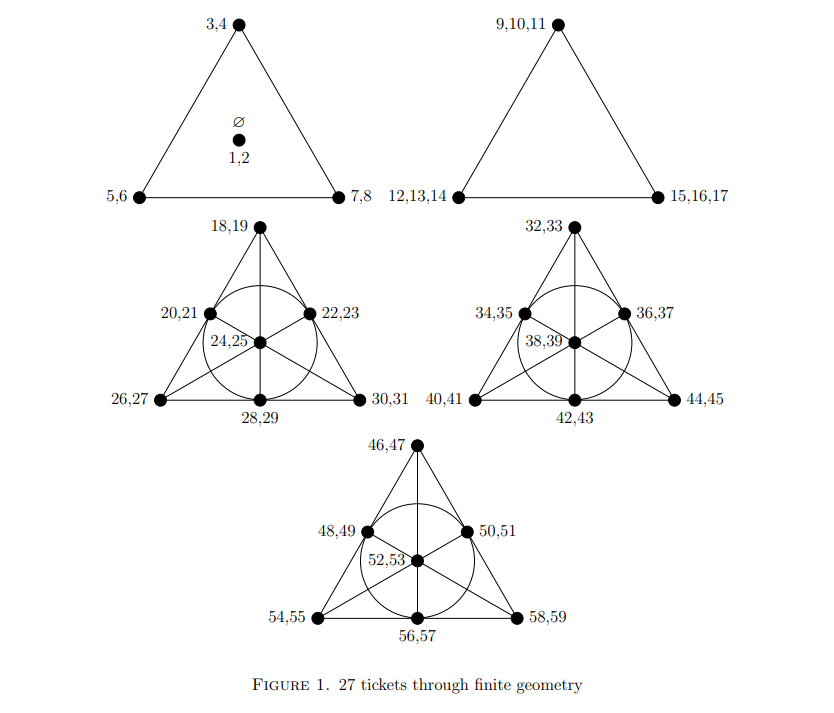The old joke says that the lottery is a tax on people who can’t do math, however, mathematical analysis can actually be used to try to understand the complex probability involved in such a game. But is there a minimum number of tickets you can buy to guarantee a win? Mathematicians at the University of Manchester have found that the answer is yes, but that doesn’t mean this approach will make you rich.
The team looked at the UK National Lottery’s Lotto game, where you pick six numbers between 1 and 59. Your goal is to be lucky enough to have the same numbers that are drawn by the company. You can win prizes from having guessed a pair to the jackpot (matching all six numbers), which as of this week is £7.8 million ($9.9 million).
So to guarantee a win in Lotto, Dr David Stewart and Dr David Cushing have worked out how to get at least two numbers right out of all 45,057,474 possible combinations. And what you need is just 27 tickets.
To describe the possible combinations, they used Fano planes, geometrical constructions where pairs of numbers are plotted on or inside triangles, and straight lines or circles connect them. Each line passes through three pairs, producing one of the possible winning sextets.

The possible 27 tickets sextet organized using finite geometry.
Image Credit: University of Manchester
What was intriguing, mathematically speaking, was not winning the lotto but finding out what was the smallest possible number of tickets necessary. It turns out that proving you cannot win it with 26 tickets was quite the challenge.
“Fundamentally there is a tension which comes from the fact that there are only 156 entries on 26 tickets. This means a lot of numbers can’t appear a lot of times. Eventually, you see that you’ll be able to find six numbers that don’t appear on any ticket together. In graph theory terms, we end up proving the existence of an independent set of size six,” Stewart, a Reader in Pure Mathematics at The University of Manchester, said in a statement.
Mathematician Peter Rowlett estimated in The Aperiodical that in 99 percent of the cases, the investment won’t match the profit. You’ll win but not much. Obviously, theory can only get you so far so the researchers put it into practice.
They bought 27 lotto tickets ahead of the July 1 2023 draw. They spent £54 ($68.61). They had three winning tickets, matching a pair on each. That wins you a free randomly generated ticket for the following lottery. None of those three won.
So more of an intriguing mathematical solution rather than a quick money-making scheme.
The paper, not yet peer-reviewed, is available at arXiv.
Source Link: Wanna Win The Lottery? Math Tells Us How Many Tickets You Need